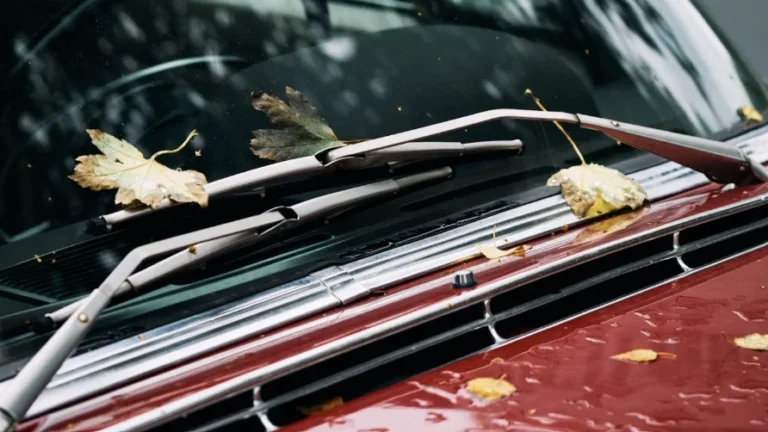Mentoring new players in games, often referred to as raising a newbie to grind them, can be both a rewarding and challenging experience. As an experienced player, you’re responsible for teaching someone the ropes, guiding them through complex game mechanics, and helping them build their skills. But how do you do this effectively without overwhelming them? This guide will walk you through everything you need to know about mentoring new players, avoiding common mistakes, and fostering a strong mentor-newbie relationship.
What is “Raising a Newbie to Grind Them”?
“Raising a newbie to grind them” refers to the process of mentoring a new player, teaching them the skills necessary to navigate the game, and eventually reaching a level where both can grind, or repetitively complete tasks for rewards. This grind benefits both mentor and mentee, helping them develop their in-game progress. However, mentoring goes beyond just giving instructions; it involves developing the newbie’s confidence, building their understanding of the game, and fostering a partnership that makes the grind enjoyable and fruitful for both parties.
Importance of Mentoring New Players
Mentoring new players has several benefits. It not only helps them get a foothold in the game but also strengthens the gaming community. When you’re raising a newbie to grind them, you contribute to a positive gaming environment where experienced players offer guidance, and new players feel welcomed. Additionally, you create a learning process that can foster friendships, teamwork, and improved gaming skills for both mentor and mentee. Many games have complex learning curves, and without proper guidance, newbies can quickly become frustrated or disinterested.
The Psychology Behind Mentoring New Players
Understanding the psychology behind mentorship is key to raising a newbie to grind them effectively. As a mentor, you’re not just teaching game mechanics—you’re also influencing their gaming mindset. New players often feel overwhelmed by the learning curve or underconfident about their abilities. Your role is to build their confidence gradually by offering encouragement and constructive feedback.
Psychologically, it’s important to remember that every newbie will learn at their own pace. Some may grasp the basics quickly, while others may take time to become comfortable with the game’s intricacies. Your patience and ability to tailor your mentoring style to the individual will go a long way in keeping them engaged and motivated.
Common Mistakes to Avoid When Raising a Newbie
Mentoring a new player can be tricky, and mistakes can easily happen. Here are some common pitfalls to avoid:
- Overloading them with information: New players often need time to digest what they’ve learned. Avoid bombarding them with too much too soon. Instead, focus on teaching them one skill at a time.
- Being too competitive: It’s easy to forget that you’re the expert and the newbie is still learning. Don’t push them too hard to keep up with you in the early stages. Let them play at their pace.
- Skipping the basics: Never assume that the newbie already understands basic mechanics. Make sure they’re clear on the fundamentals before moving on to more advanced strategies.
- Not encouraging self-learning: While guidance is important, don’t do everything for them. Encourage the newbie to try things on their own, as this fosters independence and faster learning.
By avoiding these mistakes, you’ll make the process of raising a newbie to grind them smoother and more enjoyable for both of you.
Developing a Mentorship Plan
One of the most effective ways to raise a newbie to grind them is by creating a structured mentorship plan. This gives the learning process a clear direction and ensures that the newbie doesn’t feel overwhelmed or lost. Here’s how to create a simple mentorship plan:
- Start with the basics: In the first few sessions, focus on fundamental skills like movement, combat, or crafting. This will give the newbie a strong foundation to build on.
- Gradually increase difficulty: As they become more comfortable, introduce them to more advanced tactics like team strategies, efficient grinding techniques, or boss fights.
- Set clear goals: Establish milestones to help track their progress. For example, “Reach level 10 by the end of the week” or “Complete your first dungeon without help.”
- Be available: Let the newbie know that they can come to you with questions at any time. It’s important to provide support beyond the designated mentorship sessions.
- Review and adjust: Periodically check in with the newbie to see how they’re doing. If they’re struggling in a certain area, adjust your approach accordingly.
How to Track Progress and Provide Feedback
Tracking the newbie’s progress is essential for successful mentorship. This not only helps you see how well they’re learning but also gives them a sense of achievement. Here’s how to do it effectively:
- Use in-game stats: Most games have progress tracking features that show player performance. Use these stats to identify areas where the newbie excels and where they need more help.
- Regular feedback: Provide feedback frequently but constructively. Instead of pointing out mistakes, focus on what they’re doing well and how they can improve. For example, “Your timing on that attack was great, but try dodging a bit earlier next time.”
- Celebrate milestones: Whenever the newbie achieves a goal—no matter how small—celebrate it! A simple “Well done!” or giving them in-game rewards can motivate them to keep going.
Tracking and feedback help solidify the mentor-newbie relationship and ensure that raising a newbie to grind them remains a positive experience.
Creating a Sustainable Mentor-Newbie Relationship
Mentorship should be a two-way street where both the mentor and newbie benefit from the relationship. To maintain a healthy dynamic, consider these tips:
- Set boundaries: Establish how often and when you’ll play together. This avoids burnout for both parties and ensures a balanced experience.
- Respect their growth: As the newbie improves, give them more freedom. Let them take the lead in some situations to build confidence.
- Foster independence: Gradually reduce your direct involvement as they grow more proficient. Encourage them to explore the game independently while still being available for occasional guidance.
- Keep the experience fun: Don’t make the mentorship feel like a chore. Incorporate fun, casual gaming sessions where you both just enjoy the game together.
Utilizing Community Tools for Mentoring
In today’s gaming world, there are many tools and resources available to help you mentor effectively. Consider using community platforms to enhance the mentoring process:
- Forums: Direct your newbie to community forums where they can learn more about the game’s mechanics from other players.
- Discord groups: Many games have active Discord communities where new players can ask questions and find additional support.
- Tutorials and guides: Recommend specific tutorials or video guides to supplement what you’re teaching them.
- Mods and add-ons: Some games allow the use of mods or add-ons to improve the learning process, such as enhanced UI features or training mods.
These tools can make the process of raising a newbie to grind them more efficient and comprehensive.
How Grinding Together Benefits Both Mentor and Newbie
Grinding together is where the true essence of the mentorship shines. When you raise a newbie to grind them, both parties benefit. Here’s how:
- Improved teamwork: Mentoring a newbie through the grind teaches both players how to work as a cohesive unit.
- Shared knowledge: The newbie learns strategies and tips from you while you may discover new perspectives from them.
- Increased rewards: Many games offer group-based rewards for grinding together, which benefits both the mentor and the newbie.
- Stronger relationship: Grinding creates a bonding experience. You’ll develop trust and camaraderie as you face challenges and achieve goals together.
Game-Specific Mentorship Challenges
Each game genre poses unique challenges in mentoring. Here are some examples:
- MMOs: These games often have a steep learning curve with complex mechanics. The challenge is teaching a newbie to manage multiple systems (quests, crafting, raids) while keeping them engaged.
- FPS games: Quick reflexes and map knowledge are key in FPS games. Newbies may struggle with fast-paced gameplay, so the challenge is improving their reaction time and game sense.
- MOBA games: MOBAs require strong teamwork and strategy. Mentoring a newbie in these games involves teaching map awareness, character roles, and team dynamics.
Conclusion
Raising a newbie to grind them is a rewarding experience for both the mentor and the newbie. By offering guidance, avoiding common mistakes, tracking progress, and fostering a long-term mentor-newbie relationship, you’ll not only help the newbie become a better player but also enhance your own gaming experience. Remember to stay patient, adapt your mentoring style, and make the process enjoyable for both of you.
Mentorship is about growth, fun, and teamwork. So, grab your newbie, start grinding, and watch both your skills flourish.






















+ There are no comments
Add yours